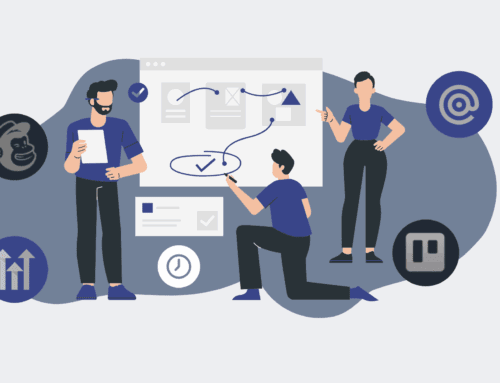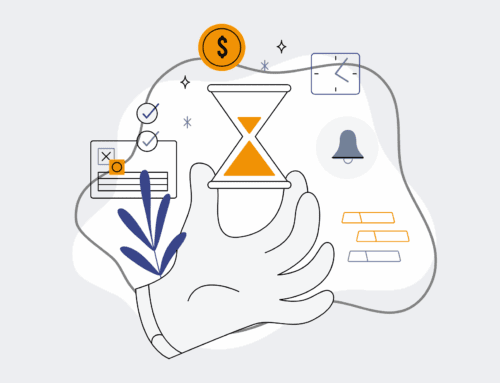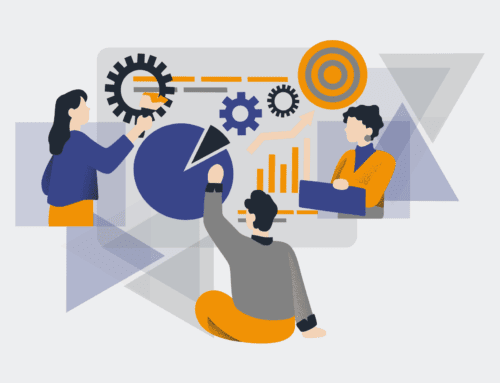12 Ways AI is Revolutionizing HR & Recruiting: Practical Applications for 2024
The landscape of HR and recruiting is undergoing a seismic shift, driven by advancements in Artificial Intelligence. What was once the realm of science fiction is now a practical reality, offering unprecedented opportunities for businesses to streamline operations, enhance candidate and employee experiences, and make data-driven decisions. For HR leaders, COOs, and recruitment directors, the question is no longer if AI will impact their domain, but how to strategically leverage it to gain a competitive edge. At 4Spot Consulting, we’ve seen firsthand how integrating AI with robust automation frameworks like OpsMesh can eliminate human error, reduce operational costs, and increase scalability, ultimately saving our clients upwards of 25% of their day.
Historically, HR and recruiting have been plagued by manual, repetitive tasks – sifting through mountains of resumes, scheduling countless interviews, managing complex onboarding paperwork, and responding to a constant stream of employee queries. These low-value, high-effort activities consume valuable time, divert high-value employees from strategic initiatives, and often lead to bottlenecks that hinder growth. The beauty of AI in this context isn’t just about doing things faster; it’s about doing them smarter, more accurately, and at a scale previously unimaginable. It’s about empowering your team to focus on what truly matters: human connection, strategic talent development, and fostering a thriving company culture.
This article explores 12 practical applications of AI that are transforming HR and recruiting operations right now. These aren’t theoretical concepts; these are actionable insights derived from real-world implementations that deliver tangible ROI. By understanding and adopting these AI-powered strategies, businesses can not only optimize their talent acquisition and management processes but also unlock new levels of efficiency and growth. Let’s dive into how AI can redefine your HR and recruiting playbook, moving beyond mere automation to intelligent, predictive, and personalized operational excellence.
1. Automated Resume Screening & Sourcing
One of the most time-consuming and often biased aspects of recruitment is the initial screening of resumes. AI-powered tools are now capable of rapidly processing thousands of applications, identifying candidates whose skills, experience, and qualifications precisely match job requirements. These systems go beyond keyword matching, employing natural language processing (NLP) to understand context, identify transferable skills, and even evaluate cultural fit based on various data points. This dramatically reduces the manual workload on recruiters, allowing them to focus on engaging with truly qualified candidates rather than sifting through irrelevant applications. For businesses struggling with a high volume of applicants or niche roles, AI sourcing tools can proactively identify passive candidates from various online platforms, expanding the talent pool significantly. This automation not only accelerates the hiring cycle but also introduces a level of objectivity that helps mitigate unconscious bias in the initial stages, ensuring a more diverse and equitable candidate pipeline. Integrating these AI capabilities with a robust CRM like Keap allows for seamless candidate tracking and relationship management from the very first touchpoint, a foundational element of 4Spot’s OpsMesh framework for a unified data approach.
2. Personalized Candidate Engagement & Communication
Maintaining high levels of candidate engagement throughout the recruitment process is crucial for securing top talent and building a strong employer brand. AI is revolutionizing this by enabling highly personalized and timely communication at scale. AI-powered chatbots can answer frequently asked questions 24/7, providing instant support and guidance to candidates regarding job details, application status, or company culture. Beyond initial queries, AI can personalize follow-up emails, interview scheduling, and even pre-interview preparation materials based on individual candidate profiles and their progress in the hiring funnel. This level of responsiveness not only improves the candidate experience but also frees up recruiters’ time from administrative tasks. For instance, an AI tool can analyze candidate responses and recruiter feedback to suggest optimal next steps or even draft personalized outreach messages that resonate more effectively. By automating these communication touchpoints, companies can ensure no qualified candidate falls through the cracks due to slow or generic interactions, presenting a polished and efficient image of their organization. The goal, as always, is to reduce low-value work for high-value employees, allowing recruiters to focus on building meaningful relationships rather than managing email queues.
3. Predictive Analytics for Turnover & Retention
Employee turnover is a significant cost center for any business, impacting productivity, morale, and recruitment expenses. AI-driven predictive analytics offers a powerful solution by identifying employees at risk of leaving before they even start looking for new opportunities. By analyzing various data points—such as performance reviews, compensation, tenure, engagement survey results, manager feedback, and even external market trends—AI algorithms can pinpoint patterns that indicate potential flight risks. This allows HR departments to proactively intervene with targeted retention strategies, whether it’s offering professional development opportunities, adjusting compensation, or improving work-life balance initiatives. Furthermore, these insights can inform hiring decisions, helping organizations identify candidates who are statistically more likely to thrive and stay long-term. This proactive approach transforms retention from a reactive damage-control exercise into a strategic, data-informed initiative, directly contributing to operational stability and cost savings. Understanding these patterns is key to optimizing your workforce, and it’s an area where 4Spot Consulting helps businesses integrate disparate data sources into a single source of truth for actionable insights.
4. AI-Powered Onboarding & Employee Experience
The onboarding process sets the tone for an employee’s entire tenure, yet it’s often fraught with manual paperwork, repetitive introductions, and inconsistent experiences. AI can dramatically improve this by creating personalized, engaging, and efficient onboarding journeys. AI chatbots can guide new hires through essential paperwork, answer common questions about company policies, benefits, and IT setup, and even introduce them to key team members. Beyond administrative tasks, AI can curate personalized learning pathways based on an employee’s role, background, and learning style, ensuring they gain the necessary skills quickly. Virtual reality (VR) or augmented reality (AR) powered by AI can offer immersive training experiences, from product knowledge to safety protocols. This not only reduces the burden on HR staff but also significantly enhances the new hire’s experience, making them feel supported, informed, and integrated from day one. A well-orchestrated onboarding process, facilitated by AI, leads to faster time-to-productivity, higher engagement, and improved retention rates, contributing directly to a more efficient and productive workforce. Our OpsBuild framework often includes custom automation of these complex onboarding workflows.
5. Intelligent Chatbots for HR Support
HR departments are constantly inundated with employee queries, ranging from benefits information and payroll questions to policy clarifications and vacation requests. Intelligent chatbots, powered by AI and natural language processing, can handle a vast majority of these inquiries autonomously, providing instant, accurate answers 24/7. These bots can be integrated across various platforms—company intranets, messaging apps, and HR portals—to offer seamless support. By learning from past interactions, they continuously improve their accuracy and efficiency, understanding complex queries and escalating to human HR professionals only when necessary. This frees up HR staff from repetitive administrative tasks, allowing them to focus on more strategic initiatives, complex employee relations, and talent development. The result is faster resolution times for employees, improved satisfaction, and a significant reduction in the operational load on the HR team. This type of always-on support aligns perfectly with 4Spot Consulting’s mission to eliminate bottlenecks and optimize operational efficiency, helping businesses save crucial time and resources.
6. Performance Management & Feedback Enhancement
Traditional performance reviews can often be subjective, infrequent, and resource-intensive. AI is transforming performance management by enabling continuous feedback, objective evaluations, and personalized development plans. AI tools can analyze various data points—project contributions, peer feedback, self-assessments, and even communication patterns—to provide a more holistic and objective view of an employee’s performance. They can identify skill gaps, recommend relevant training, and even suggest optimal team compositions for projects. Furthermore, AI can facilitate more frequent and constructive feedback loops by prompting managers and employees for insights and summarizing key trends. This moves beyond annual reviews to a dynamic, ongoing performance dialogue, fostering continuous improvement and growth. By providing data-driven insights, AI helps managers have more effective conversations, leading to improved employee development, higher engagement, and better alignment with organizational goals. Leveraging AI here means moving from reactive performance management to proactive talent nurturing, a key pillar in optimizing human capital.
7. Learning & Development Content Curation
In today’s rapidly evolving business environment, continuous learning and development (L&D) are critical for keeping employees’ skills current and relevant. AI plays a transformative role in personalizing and optimizing L&D programs. AI-powered platforms can assess individual employee skill gaps, career aspirations, and learning styles to curate highly relevant and engaging learning content. This goes beyond generic courses, recommending specific articles, videos, online courses, and even mentors tailored to each employee’s needs. AI can also track learning progress, identify areas where employees might be struggling, and suggest alternative resources or formats. This intelligent curation ensures that L&D investments are highly effective, leading to faster skill acquisition and increased employee engagement. By providing a personalized learning journey, AI empowers employees to take ownership of their professional growth while ensuring the organization possesses the critical skills needed for future success, enhancing the overall capability and adaptability of the workforce. Our OpsCare framework helps maintain and optimize these types of dynamic systems over time.
8. Compliance & Risk Management Monitoring
Navigating the complex and ever-changing landscape of HR compliance is a major challenge for businesses, with severe penalties for non-compliance. AI offers powerful tools to mitigate these risks by continuously monitoring for regulatory changes and internal policy adherence. AI systems can analyze vast amounts of legal texts, identify updates in labor laws, data privacy regulations (like GDPR or CCPA), and industry-specific compliance requirements. They can then flag relevant changes for HR teams and even suggest necessary adjustments to internal policies or procedures. Furthermore, AI can monitor internal communications, document management, and other operational data to identify potential compliance breaches or risky behaviors, such as discrimination or harassment, allowing for proactive intervention. This proactive approach significantly reduces the risk of legal issues, fines, and reputational damage. By automating compliance monitoring, HR teams can ensure their organization operates within legal boundaries, creating a safer and more ethical work environment without the overwhelming manual burden of constant oversight. Data integrity, a cornerstone of 4Spot’s approach, is paramount here, ensuring that the AI has accurate and reliable information to analyze.
9. Compensation & Benefits Optimization
Attracting and retaining top talent hinges significantly on offering competitive compensation and benefits packages. AI provides sophisticated analytical capabilities to optimize these offerings. By analyzing vast datasets—including market benchmarks, industry trends, internal salary data, employee performance, and even economic indicators—AI algorithms can help HR teams design compensation structures that are both fair and competitive. These tools can predict the impact of various compensation adjustments on employee retention, identify pay equity gaps, and ensure compliance with equal pay regulations. Furthermore, AI can personalize benefits recommendations to individual employees based on their demographics, preferences, and life stages, ensuring that benefits packages are perceived as valuable and relevant. This data-driven approach moves beyond guesswork, allowing businesses to make strategic decisions that maximize the ROI on their compensation and benefits investments, enhancing employee satisfaction and reducing turnover. It’s about ensuring every dollar spent on your people delivers maximum strategic value, a core tenet of efficient operations.
10. Workforce Planning & Talent Gap Analysis
Strategic workforce planning is essential for long-term business success, ensuring the organization has the right talent in the right roles at the right time. AI is transforming this by providing predictive insights into future talent needs and potential skill gaps. By analyzing internal data (employee skills, tenure, promotions, turnover) combined with external market data (industry trends, economic forecasts, competitor activities), AI algorithms can forecast future workforce demands, identify emerging skill requirements, and pinpoint areas where talent shortages are likely to occur. This allows HR leaders to proactively develop talent pipelines, implement targeted training programs, or plan for strategic hires well in advance. Instead of reacting to talent crises, businesses can strategically build their workforce for future growth and competitive advantage. This level of foresight is invaluable for scaling businesses and ensuring long-term operational resilience, a critical component of the strategic planning 4Spot Consulting facilitates with its OpsMap audit.
11. Candidate Experience & Brand Reputation Management
In today’s competitive talent market, the candidate experience significantly impacts an organization’s brand reputation and ability to attract top talent. AI offers powerful tools to not only personalize the candidate journey but also to actively manage and enhance employer branding. AI can analyze candidate feedback from various sources (surveys, social media, review sites like Glassdoor) to identify pain points in the recruitment process and areas for improvement. Beyond reactive analysis, AI-powered systems can help craft more engaging and authentic job descriptions, create personalized career site content, and even generate targeted recruitment marketing campaigns based on candidate profiles and preferences. Furthermore, AI chatbots can ensure prompt and consistent communication, demonstrating a professional and respectful approach to all applicants, even those not selected. By automating and optimizing these interactions, businesses can cultivate a positive reputation as an employer of choice, ensuring a steady stream of high-quality applicants and a strong, resilient employer brand in a crowded market.
12. Internal Mobility & Career Pathing
Retaining high-performing employees and fostering their growth is paramount. AI is revolutionizing internal mobility and career pathing by making it easier for employees to discover relevant opportunities within the organization and for HR to identify hidden talent. AI platforms can analyze an employee’s skills, experience, performance data, and career aspirations to suggest suitable internal job openings, mentorship opportunities, or development programs. They can map out potential career paths within the company, highlighting the skills and experiences needed for advancement. This intelligent matching not only improves employee retention by showing clear growth opportunities but also helps organizations fill critical roles internally, reducing recruitment costs and time-to-hire. By leveraging AI, companies can create a more transparent and equitable internal talent marketplace, empowering employees to drive their own careers while ensuring the organization maximizes its existing human capital and builds a more agile and adaptive workforce from within. This holistic approach to talent management aligns perfectly with 4Spot Consulting’s focus on end-to-end operational optimization.
The integration of AI into HR and recruiting is not just a technological upgrade; it’s a strategic imperative. From automating mundane tasks and enhancing the candidate experience to providing predictive insights for retention and workforce planning, AI offers unparalleled opportunities for efficiency, accuracy, and strategic advantage. These 12 practical applications demonstrate how businesses can transform their talent operations, moving from reactive processes to proactive, data-driven strategies that empower both HR professionals and the broader workforce. Embracing these innovations allows HR and recruiting leaders to transcend administrative burdens and focus on what truly drives business success: strategic talent development and human connection. At 4Spot Consulting, we specialize in helping high-growth B2B companies navigate this transformation, implementing AI and automation solutions that eliminate human error, reduce operational costs, and increase scalability. Ready to uncover automation opportunities that could save you 25% of your day? Book your OpsMap™ call today.
If you would like to read more, we recommend this article: Ensure Keap Contact Restore Success: A Guide for HR & Recruiting Data Integrity








